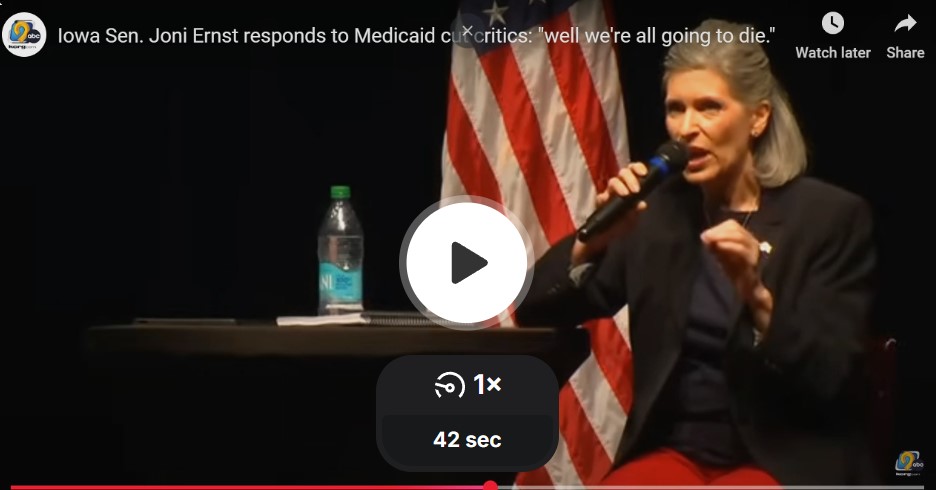Let’s say you are representing your company or agency at a public meeting. You’re delivering key messages effectively. Suddenly, a member of the audience asks a critical question or makes a provocative claim that catches you slightly off guard. Instead of giving a thoughtful response, you utter an off-the-cuff flippant remark that angers your audience and overshadows your key messages.
This is the scenario Senator Joni Ernst found herself in during a town hall meeting. The Iowa Republican was making her case that proposed Medicaid cuts would only affect those not eligible for the benefits. Some people in the audience agreed with her, others did not.
One of those who disagreed shouted out, “People will die.” Ernst casually responded, “Well, we’re all going to die.” The senator’s opponents and the media characterized that remark as flippant and callous. View the clip below.
The media piled onto Ernst as her remark went viral. Ernst’s supporters insisted the media overreacted and treated her unfairly. We’re not here to argue that point either way because for our purposes it doesn’t really matter. Why? Because the media is looking for ratings and clicks and if they see something that enhances their visibility, they will react. Just Google Ernst’s name right now and you’ll see what we mean.
This episode is unlikely to affect the senator’s career in the long term. But the lesson here is to see the damage that you could do to yourself and your company in the short and long term if you are careless with your words when the media is present.
So, if you get caught off guard by a question or remark at a public meeting, stay focused on your messages. Pause, take a breath, and say something like, “I appreciate your concern. Your opinion matters to us. Let me tell you where we’re coming from.”
A response like that will probably lower the temperature in the room. And it will keep the media from zeroing in on a few words that could negatively alter your entire presentation.

